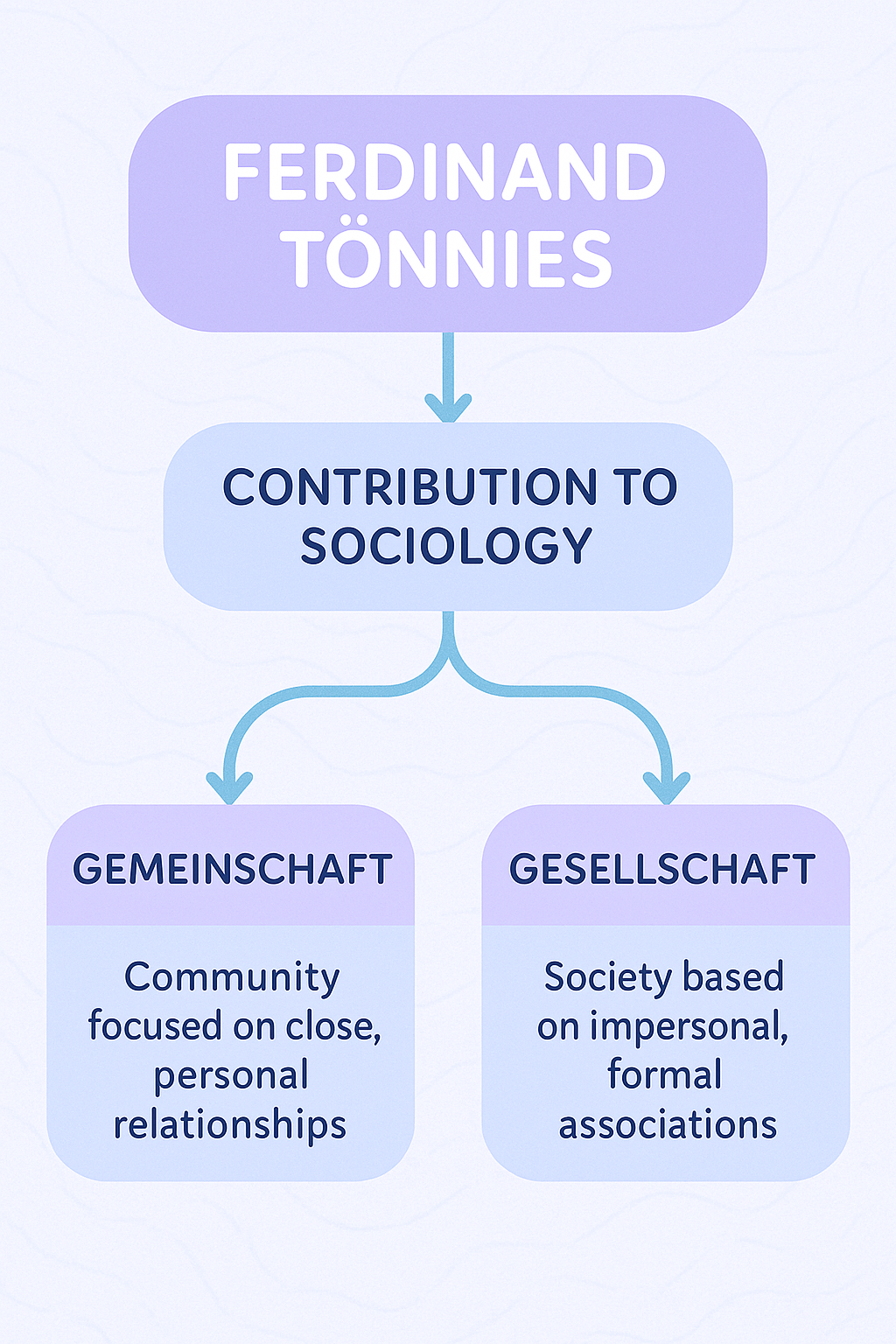Home » Social Thinkers » Ferdinand Tonnies
Ferdinand Tonnies
Index

Introduction and Core Thesis
Ferdinand Tönnies wrote the influential sociological work “Gemeinschaft and Gesellschaft” to explore the fundamental dichotomy between two alternative ways of organizing social life. His central thesis presents an evolutionist streak, arguing for the gradual evolution of society from Gemeinschaft (community) to Gesellschaft (society), which he characterized as a linear and irrevocable process. In developing this framework, Tönnies was comparing two alternative organizational structures that represent fundamentally different approaches to human social organization and collective living.
Defining Gemeinschaft: The Community Model
Gemeinschaft represents small-scale community life characterized by little community bonds and intimate social connections. This form of social organization is built upon natural will, which is guided by emotions and spontaneous human relationships. The community model emphasizes particular kinds of human relations that are characterized by spontaneity and guided by emotional connections. Within Gemeinschaft, relationships are seen as ends in themselves, where individuals relate to one another through deep personal bonds. Examples of this include going home to missing parents and family, where kinship bonds dominate the social structure. For businessmen, relationships in this context are the means, and kinship bonds become the primary organizing principle of social life.
Understanding Gesellschaft: The Society Model
In contrast, Gesellschaft represents large-scale society characterized by industrial and impersonal social structures. This organizational form is based on arbitrary or rational will (Kürwille), which is guided by cold logic and calculated decision-making. Within Gesellschaft, relationships serve as a means to an end rather than being valued for their intrinsic worth. The society model emphasizes larger-scale formal education, science, and the decline of religion as organizing principles. Here, kinship bonds are dominated by other forms of social organization, including religion, state, agrarian structures, and small-scale informal education systems. A primary concern within this model is how these two ways of organizing society treat and manage social relationships differently.
Tönnies’ Evolutionary Framework and Its Implications
Tönnies presented his analysis within an evolutionary framework, suggesting that human societies naturally progress from Gemeinschaft to Gesellschaft as an irreversible historical process. He bemoaned the loss of close-knit community life and the corresponding rise of impersonal society, viewing this transformation as both inevitable and problematic. Like evolutionists before him, Tönnies argued that there is a gradual, irreversible, linear change occurring in social organization. However, he was not admiring this change as progress but rather warning of the negative consequences of losing traditional community bonds. His analysis revealed that warmth of relations and close-knit communities were being lost and replaced by impersonal relations of urban life, representing a fundamental shift in how humans organize their social existence.
Human Volition and Social Organization
Central to Tönnies’ framework is his analysis of how society and social life are based on human volition and will, which he categorized into two distinct types. Natural will represents spontaneous, emotionally-guided decision-making that characterizes community life, while arbitrary/rational will represents calculated, logically-guided decision-making that defines modern society. He explained the nature of Gemeinschaft and Gesellschaft in detail through this lens of human motivation and social organization. Society, according to Tönnies, is fundamentally based on these two kinds of human will, and the predominance of one over the other shapes the entire character of social organization and interpersonal relationships within that context.
Critical Assessment and Methodological Limitations
Despite the influence of Tönnies’ work, his dichotomy has faced significant criticism for its methodological and empirical limitations. The framework failed in other aspects, lacking rigorous methodology and comprehensive empirical study or research to support its broad claims about social evolution. Critics argue that this dichotomy was influenced greatly by romantic notions of community life rather than systematic sociological analysis. However, the work demonstrated that people were thinking of alternative ways to study society, representing an important early attempt to develop systematic sociological theory. While it showed limitations in empirical grounding, it nevertheless contributed to the broader development of sociological thinking about community, society, and social change, influencing subsequent generations of sociologists who would build upon and rene these foundational concepts.
References:
Tönnies, Ferdinand. Community and Civil Society. Edited by Jose Harris, translated by Jose Harris and Margaret Hollis. Cambridge: Cambridge University Press, 2001. (Originally published as Gemeinschaft und Gesellschaft in 1887)
|
|

 |
© 2025 sociologyguide |
 |













